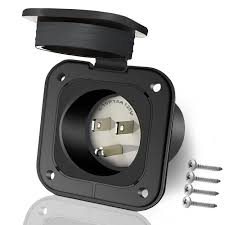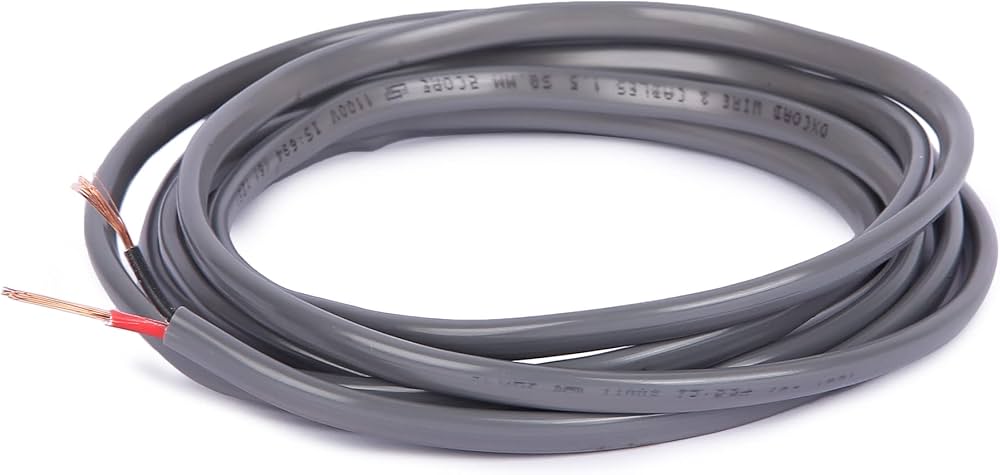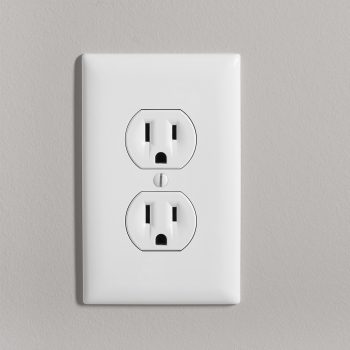But you dont really care 'bout voltage, do ya?
It goes like this, on the the 25th. A minor shock? No. Death madeshift.
The baffled men are meeting now their maker.
Hallelujah, Hallelujah,
Hallelujah, Hallelujah!
Also known as a “nope rope”
I thought that was a snake…
Those are danger noodles
What what’s a safe danger noodle then? I thought those were nope ropes.
According to the google, non-venemous snakes are nope ropes. Venemous ones are danger noodles.
its not a danger noodle if its safe. its a safe noodle.
I wouldn’t plug both ends of a snake into the mains either.
We call them a Deadman’s cable up here, and sadly they’re still quite frequently used in the northern rural areas because it costs almost $2,000 to have a dedicated bypass switch installed(generator hookup) so nobody does it, they just throw the Main and hope they don’t put too much stress on the internal lines.
Is it legal? Hell no but they do it anyway
I did this.
Is it stupid? Yes. Did it work? Also yes. For the amount of time that we’d have power out, it was just way to easy to throw a breaker and connect it like this just to keep a small heater and a light running. If I had the money at the time I would have loved battery backup/ bypass but this cost $2 and an old cord.Especially considering that having a functional stove nowadays skyrockets your insurance. A lot of people used to use wood stoves as the backup heat source if the power went out, we still have one ourselves however it’s “non-functional” , it probably is to be honest it hasn’t been ran for a few years now but it was going to Skyrocket the insurance if we had it listed as a functional Appliance
There are way cheaper ways to have a safe interconnect then those second box systems. There are kits that install a plate next to the main breaker and prevent both the main breaker and the next closest breaker from both being on at the same time. You then setup the second breaker to be your generator inlet. Here’s a DIY version, but there are kits for all major brands.
The lord chord
Hymnnn
I thought this was an anti homosexuality meme until I read the top comment.
I’ve got to stop using Lemmy. It is changing me…
I too have developed into a very politically correct person with lemmy, I kinda miss being able to make gay jokes
I guess you’re too straight edge for that.
God, straight edge is so old I literally had to get a consultation to understand the insult
Joke not insult! Straight edge is like doing the right thing or something like that.

I need to befriend more gays
I use an app for that!
Or get a black friend ( ͡° ͜ʖ ͡°)
Just make pro-gay gay jokes.
Oh can you tell me one?
Gay men are fucking assholes
Edit: afterthought, it’s a joke I heard, I hope no one thinks this is an offensive statement I made
That is a sweeping generalization. You’re completely ignoring the Bottoms.
Gay jokes as in just jokes making fun of gay people? Why do you miss making that? I can just tell you that especially when I was a gay kid, I would have wished no-one would make such.
That’s pretty gay.
/shrug at least I’m not an asshole purposely hurting other people
Are you referring to me? Because I am not.
Lame. You’re not doing it right unless it hurts your asshole
deleted by creator
I was gonna tell you a gay joke, butt fuck it.
I know so many gay and racist jokes as a result of my upbringing. I’ve only been able to convert a few. There’s alao a few I can still tell to the right crowd.
I heard there was a secret cord.
you plug it in to meet the lord.
But you don’t really care for safety, do ya?
It goes like this, you plug it in,
And in a flash, the lights go dim,
The power’s gone,
and now it’s running through ya.You have been warned but you needed proof.
You hanged some lighting on the roof.
The spirit of the holiday overthrew you.
You climbed atop the kitchen chair.
You plugged the cord. It zapped your hair.
And from your lips you stuttered Hallelujah.kitchen chair, not chain
Thanks. Fixed.
Beautiful
Amazing, I got like two lines in on my own and gave up but you did it you beautiful mind
They very much do exist, though. Often used sketchily with generators.
How do you non-sketchily feed a generator’s power into your home?
You get a qualified tradesperson to wire it properly into your electrical distribution.
Technical details and the social contract mandate that your generator is never connected to the main power grid. The generator should be wired to an enclosed AC transfer switch. This switch will connect either the generator or the main grid to your home, but never both.
Some detail: If the generator is wired to the main grid it can prevent restoration of main grid power. While an AC transfer switch will perform the task, many jurisdictions mandate additional safety precautions (which can be quite expensive).
It can also kill a lineman working on the power lines outside your house, thinking they’re not energized.
It could. But, there’s more layers to this swiss cheese model of safety. For example, the lineman’s procedure is to ground out, then isolate, then test. They’d need to skip both ground out and test to be electrocuted by an asshole with a generator.
Of course, but we should never be advocating for the elimination of Swiss cheese slices. Don’t use the suicide plug, get it wired up correctly with isolation.
What if the generator was connected after the lineman’s test?
Then ground out bypasses the body.
The proper way of doing it is using what’s called a generator bypass switch, basically it’s a physical switch that runs before your fuse box, and it makes it impossible to have both the main and the generator being fed at the same time, so you can either have the main on or you could have the generator on. This prevents the electricity from your generator back feeding into the line and killing a line worker trying to restore power.
Sadly, like the other comments have said people tend to use these male to male cables in order to not have to pay the $2,000 to install the switch and instead choose to just turn the main breaker off and plug that cable in. But since it’s possible to have both the main and the generator on it’s not legal because if you forgot to throw the Main or if you did it incorrectly you could be putting workers at risk
Even disregarding the safety risk of using such a cable, not having a dedicated switch installed also means that you’re plugging your generator into usually an outside socket of the house, and those power lines aren’t usually meant to have a high load so you risk creating a fire from over straining the line as well
“risk a fire from staying the line with a high load”, wouldn’t the fuse in the line you plug it into simply open if you over load it?
Well, if you put them right in the normal outlet you bypass breaker and built in fuses, if breaker is open. If it is closed, then it maybe should pop if whole net outside house consumes more current than your house is allowed to (so maybe immediately), but still provides no protection inside. Or maybe if you have individual low-current rated breakers for every outlet, then yes, in this specific scenario it should technically work. Still, you know, generally bad idea.
There are electrical panel accessories that automatically isolate the house
For the actual physical connection, you use a male receptacle

In order to do it legally, you also need the transfer switch, as has been mentioned.
Nice that the screws are included
If not, you can borrow them from your aunt
And also illegally expand your 1mx1m apartment with galvanized square steel and eco-friendly wood veneer while you’re at it
The real way is a generator inlet, which is a male plug that’s interlocked with the main. So the cord ends up being a normal male/female cord
Lol this dude never turned hydro into diesel! Look at this guy!
Modern inverters do this somewhat safely by sensing the phase before outputting power.
Of course, you can’t tell just by looking, so I still would steer clear of the whole thing on principle.
No problem.
I got these baddies

Looks pretty weak sauce. I use jumper cables.
Memories. Me and my friends used to zap eachother with these before social media made everyone into cowards
It didn’t take the internet for people to be fearful and cautious around high voltage…
deleted by creator
I’m guessing your turn was last and that’s why you’re still here.
Nah but we did stop when we took out the neighbourhood’s power with our fooling. Just as well since I’ve since heard it’s quite dangerous
All I got to zap was myself.
I’m not American, Christmas lights aren’t a thing here like they’re in the US, can someone explain?
Strand of exterior lights, one end male plug one female. Idiots start to mount the lights with the female end near their outlet. Get done, become confused, go to store for male to male cord to plug into female end.
The female end is for chaining multiple strands, not for supplying power (directly) from the power socket.
The power can go through the female end just fine, that’s not the problem. The problem is people plug this “suicide cable” into the wall first, thus creating a 120v taser of sorts. Like someone else in this thread said, the only problem from cables like that is people tend to try to backfeed energy into the system with a generator or solar panels. Boom.
Also, at the end of the chain there is a male terminal exposed with live current. Could cause a fire I guess.
So is the problem solved by not plugging it into a powered wall plug? Just like… flick the switch off, like you would a light switch before changing a bulb?
Most American outlets aren’t switched. They can be but most aren’t. If you’re really paranoid you can throw the breaker at the panel.
Wait really? I don’t think I have a single unswitched plug in my house, and I’ve never seen another house with even a single unswitched plug. Do US people need to unplug cords to get rid of standby lights?

Behold the typical North American duplex power outlet. They typically do not have a built in switch. They might be controlled by a light switch, so you can throw a switch near the door and have the floor lamps turn on but most are always hot.

That’s Australia’s.
Because of the no switch, does US plugs spark a lot when getting plugged in?
Yes, but if someone trips over the cord there is a 50% chance the wrong side comes unplugged and potentially kills them, hence why they don’t make these cords
The solution is pulling down your Christmas lights and hanging them back up the right way.
Isnt having an open end really dangerous?
You cam cover them with electric tape or put a cover on them. It’s nobmore dangerous than your home’s exterior outlets though.
Homes exterior outlets??? It might be europe but we dont have neither of those seemingly pretty dangerous things.
deleted by creator
…in europe. From what i heard america doesnt really have them.
deleted by creator
I’m going to assume you are English, since they seem to have extreme fear of electric shocks. But there is never any issue with exterior outlets. 99% of them have covers like this and are no nore dangerous that light switches on a patio or in your bathroom.
The places where i lived for longer times are hungary, sweden and ireland. Ireland has the same plug as the uk, and in hungary and sweden its the general eu plug. While the plug you linked does seem mostly safe, i think its a good thing that the uk takes electrical safety seriously. My main problem with the female plug is its a christmas tree that can catch on fire and i dont think an exposed wire near it is a good idea. If the cover is required in some way to complete the circuit then i have no problem with it. Thats good design but the sad thing is most of times they skip the good design part.
Thr cover doesn’t complete the circuit, it just prevents debris getting into the socket. An extension cord doesn’t have a cover on the female end and it is completely safe, just like an outlet in a bathroom or a surge protector.
Every Christmas light string I have seen has had a small fuse inside of the plug, so even if you managed to get a female plug full of water or something and somehow manage to get shocked before a breaker trips in the outlet, you’re probably just going to blow the fuse.
Every Christmas light I’ve ever seen were all low voltage. The last Christmas light that was directly into main power instead of having a power convertor plug was decades ago. I guess that’s EU regulations at work.
deleted by creator
Aaah, gotcha! Thank you!
A strand of christmas lights resembles an extension cord, but they tend to be made of smaller gauge wire and obviously have little sockets for tiny light bulbs spaced along them. They typically have 2-prong male plug on one end, often with a 2-prong female pass through on the back so you could plug more than one strand into the same receptacle, and they usually end in a female plug so they can be daisy chained.
Sometimes, when installing them on a house or something, the person installing them may not pay attention to which direction is which, and end up installing them so that the female-only end is near where they intended to plug them in. So instead of pulling them down, or running a long extension cord, they go to the hardware store looking for a male-to-male plug adapter.
Power plugs and sockets are gendered for a very good reason; the female receptacle keeps the energized contacts protected inside, and the male plug’s contacts should only be energized when plugged in and their outer shells protect them. A male-to-male cable when one end is plugged in and the other is free now has exposed mains current just waving around in the open air ready to kill someone. And, on a smaller note with christmas lights, they usually have a fuse built into the plug, and plugging them in backwards bypasses this for at least the first strand, so it’s technically 102.7% unsafe to do this.
The other thing a male-to-male adapter or cable is sometimes used for is to attach a portable generator to your home’s electrical system by just plugging it into an outlet, especially during a power failure. They do make what are essentially special male receptacles I think mainly for the RV industry for attaching generators like that, most houses won’t have these. Plugging it into a normal wall socket will actually work, but 1. you have bypassed the breaker panel, so the breakers no longer provide over-current protection. You could overheat the wires in the walls and burn down the house. 2. there’s a possibility that you’re feeding electricity to the entire house through the breaker box and even out to the transformer, which means the lines could be energized for linemen working on them. Throwing the main breaker might prevent that? They make switching gear designed for buildings with their own backup generators that can either manually or automatically sever their connection to the grid when on internal power, but again a doofus trying to make one of these cables probably doesn’t have one of those.
Outstanding, thank you for this
Wow. I had no idea. Thank you for educating me.
Their lights usually have a plug on one end and a socket on the other. Ppl put them around the exterior of their hoses, then realise they did it the wrong way, and the socket end is near the outlet they wanted to plug them in.
Or they mounted two strands of lights, and where they meet up it’s either 2 plugs or two sockets accidentally.
/But hardware stores don’t want to sell it tooooo youuu…/
/…tooo ya…/
Practical IQ test with binary result (“pass”/“fail”).
My dumbass made one by accident. Plugged it in, walked to the other end, picked it up my saw, “Shit. How did I throw the wrong end out here?” Whatever, we’ve all strung the extension cord backwards before. Here come the IQ test.
Walked to the other end of the cord, yanked it and threw that end back out into yard, plugged it in. Went back to my saw, “Oh for fuck’s sake!”
bruh moment
as someone who has strung a ton of lights the wrong way around on more than one occasion… I can understand the desire for some magic solution that doesnt require undoing and redoing your work…
but fuck, You don’t mess around with electricity.
People also make these stupid suicide cables to plug generators into houses during disasters, often backfeeding power into the lines that may be down and can cause serious injury to workers trying to restore power.
FYI, you can just turn off the main breaker of the residence to prevent backfeeding into the power lines.
You can, but if forgetting to flip a switch can result in death, then you need a stronger safety control
Someone incompetent enough to forget to shut off the main shouldn’t be operating a generator anyway.
That’s not the point. Normal, sensible people make mistakes because they are tired or stressed or got distracted or just plain unlucky, so things have to be designed so that people can make a mistake and it not instantly create a potentially lethal situation
I don’t think you completely understand what’s being discussed here.
Someone who’s not competent enough to install a proper transfer switch (or at least hire a professional to do it) shouldn’t be operating a generator.
If someone can’t make the own cord, what’s the chance they know how vital it is to flip the breaker?
… Except the breaker only interrupts the connection on the “hot” line…
Yeah, there is a reason why proper installations require actual transfer switches or at least a manual interlock to prevent both feeds being connected at the same time. I’m also not sure what would happen if your generator was out of phase with the grid when it reenergised, but I’m sure it wouldn’t be good
If your generator was connected to mains when they came back on it would probably just kill your generator. It is the least robust device in the chain. The next step is blowing up the transformer on the pole which is a spectacular light show. It is also very expensive, and will piss off your entire neighborhood who were just about to get power back and now have to wait for the power company to fix the transformer you blew up by being a dumb ass. Finally it is possible that you would trip out the switch yard which is going to make even more people angry. The biggest risk is you putting power back on the lines that people are working on. That transformer on the pole works both directions. It drops the usual 13.8kV on your local power lines to the 240/120V in your house. It will also turn the 120/240 from your generator into 13.8 on the lines that are being worked on. 13.8 will kill you before you even know you touched it. That is why line workers go through multiple tests before they get near lines they are working on. They will notice there is power on lines that are supposed to be dead. They will find where that power is coming from. They will fine you lots of money. There may be criminal charges.
I’ve used a suicide cord before in some rare instances. When I was finished I immediately took it apart.
I used to use one to get power into my popup camper…
Where was the power originally suppose to come in? They make power “Inlets” for that sort of thing. This one is designed with an Interconnect Switch for hooking into a system with Mains, but a camper with outlets should just have a inlet somewhere.
Fuck if I know… I bought the thing used from a buddy like 12 years ago and that was the cord he’d always used … Plugs into a regular outlet on the outside of the camper and then the outlets inside have power.
/me shrugs
You didn’t do it right…
Just use 2 paper clips and some duct tape, problem solved!
https://www.youtube.com/watch?v=H-4mvK2FW78
Plugging the cord in the same outlet isn’t dangerous itself, but the prongs will be live on the end that’s not plugged in, I’d suggest not touching them. Where it IS dangerous is when people try to use them with a generator to back feed their panel. Don’t do that.
You gotta lick it after you plug it in so you know it’s working.
Teehee, it tingles!
On the one hand, there are legitimate uses for double ended male cords. On the other, absolutely none of those legit uses invovle christmas lights
Okay but can we agree very very few uses besides generator hookup
generator hookup shouldn’t be one of those, as shouldn’t proper generator transfer switches have plugs designed so you don’t need a suicide cable?
Yeah for sure, they do make generator sockets, which are a fully shrouded male plug meant to be used with a generator transfer switch.
But still, people do hook up generators this way sometimes. Regardless def not many good uses for a suicide cable




























